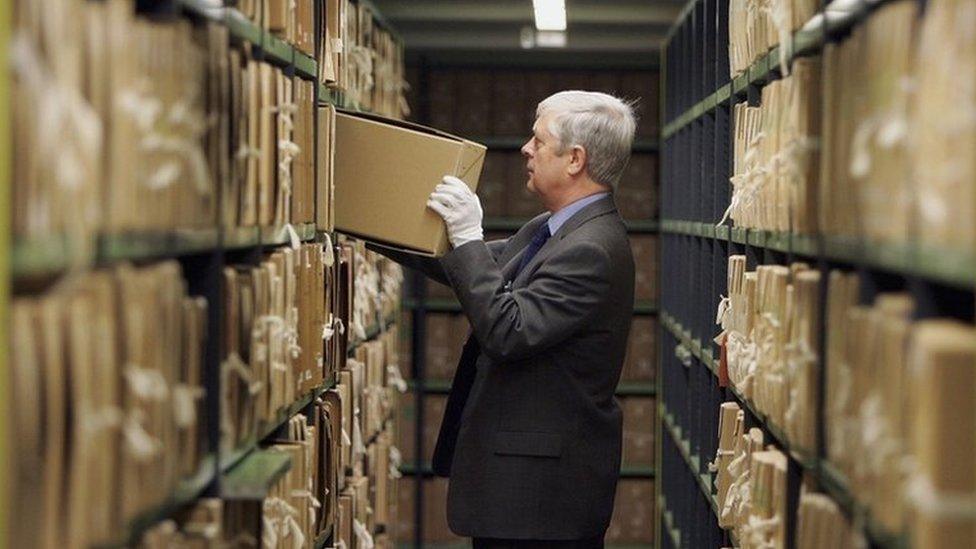Scottish journalists voice fears over freedom of information requests
- Published

Journalists from across Scotland's media have signed an open letter, external raising concerns about the way the Scottish government handles freedom of information (FoI) requests.
It accuses the government of failing to keep records of information that should be available.
And it claims that FoI requests are often screened by special advisers for any potential political damage.
The government said Scotland has the most open FoI laws in the UK.
But it said the "increasing volume and complexity" of some requests can prove time consuming, and has the potential to "seriously impact on the work of government".
'Government transparency'
The open letter has been sent to the panel of MSPs that will be responsible for selecting Scotland's new information commissioner, external.
The commissioner is responsible for promoting and enforcing the right of journalists and the public to ask for information held by Scottish public authorities.
The letter has been signed by journalists from the BBC and STV, as well as several national newspapers and the Ferret and CommonSpace websites.
The journalists say that the freedom of information laws which came into force in Scotland through the Freedom of Information (Scotland) Act 2002 had led to a "major improvement in government transparency, setting strong standards for openness and accountability".
But they warn that they have become "increasingly concerned about the way in which the legislation is being interpreted and implemented" in the past few years.
The letter highlights a series of issues, including long delays in responding to requests, legal deadlines not being met, and requests being blocked or refused for "tenuous" reasons.
The signatories also say they have evidence of "requests being screened for potential political damage by special advisers and of responses to individual journalists being routinely handled by special advisers".
They say that Scottish government officials sometimes take control of requests to other government agencies without the consent of the applicant.
And they cast doubt on the government's commitment to making itself more "open, accountable and responsive", as it has pledged to do, external.
The letter states: "We are increasingly told the information we are seeking is not held where ministerial meetings with other bodies or individuals to discuss government policy are said to be informal, minutes are not taken, and records are not kept.
"Correspondence and reports that should be available seem not to exist.
"This raises the question of whether Scottish ministers and civil servants now have a practice of not recording information that would previously have been recorded."
Outside bodies
It goes on to call for a review of the Scottish government's policies for dealing with FoI requests.
The letter concludes: "We believe that review should also look closely at the question of whether the legislation should include a duty to record on government officials, advisers and ministers, particularly when meeting with outside bodies, individuals or lobbyists to discuss government policy."
The previous information commissioner, Rosemary Agnew, stood down in April after being appointed as the country's Public Services Ombudsman.
A panel of five MSPs, including presiding officer Ken MacIntosh, will interview candidates to succeed Ms Agnew - who had been highly critical of the handling of FoI by some public bodies - next week.
The acting commissioner, Margaret Keyse, welcomed the journalists' letter.
She said: "The journalists' experience points to potentially serious breaches of a statutory duty. The commissioner can investigate these breaches, but only if they are appealed to us."
A spokeswoman for the Scottish government said its records were kept in accordance with all relevant legislation and practice.
She added: "Scotland has the most open and far-reaching freedom of information laws in the UK.
"We take our responsibility for FoI seriously and in the large majority of cases we respond on time and in full.
"At the same time, the increasing volume and complexity of some requests can prove time consuming, and has the potential to seriously impact on the work of government."
The spokeswoman said more than 2,000 requests for information were made last year, and that more had been received in the first three months of this year than in the whole of 2007.
She added: "We are working with the commissioner to ensure we continue to provide information in as timely a way as possible, while continuing to look for opportunities to proactively release information."